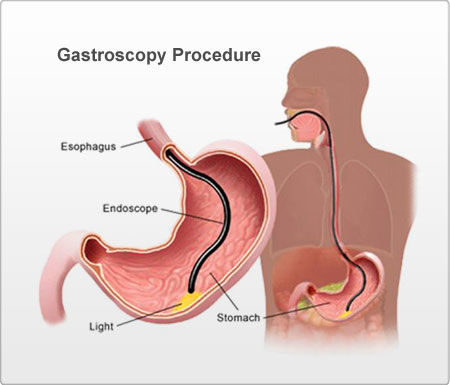Gastroscopy
A gastroscopy is usually performed for symptoms of heartburn, reflux, swallowing difficulty, food regurgitation, abdominal pain, etc. A gastroscopy allows Mr Bassari to look inside your oesophagus, stomach and duodenum. Frequently biopsies will be taken. Some of the things that are checked for during a gastroscopy include signs of reflux, presence of a hiatus hernia, signs of bleeding or ulcers of the stomach and duodenum. Biopsies of the duodenum for coeliac disease are also taken if clinically indicated. Dilatation of strictures can also be performed.
What are the risks?
Overall, a gastroscopy is a safe procedure. But every procedure carries risks. The risks are rare but can include
• Bleeding – rare if you are not on any blood thinners
• Perforation – making a hole in the oesophagus, stomach or duodenum. Also rare unless you have an underlying condition that puts you at risk.
• Aspiration – if your stomach is not empty during a gastroscopy, the procedure might be aborted due to the risk of aspiration pneumonia. This is when stomach contents such as food and drinks are regurgitated and enter the lung. This is why it’s important to be fasted prior to the procedure.
• Missed lesion – if your stomach is not empty during a gastroscopy, lesions may not be visible and a repeat procedure may be required.
Request An Appointment


